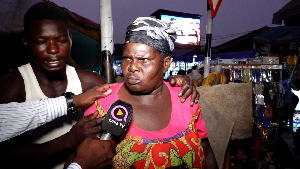Accra, Sept. 29, GNA - US Federal Aid Agency (USAID) at the weekend signed a $113 million funding to back food security in sub-Saharan Africa through agricultural productivity and elimination of bottlenecks along the value chain of intra-regional trade.
The fund, which includes $19 million for next year alone, extends by five more years, an existing collaboration between the US and Permanent Interstate Committee for Drought Control in the Sahel (CILSS), implementers of the programme.
Beneficiary countries include Burkina Faso, Cape Verde, Guinea Bissau, The Gambia, Mali, Niger, Senegal and Chad.
The rest are Cote d'Ivoire, Ghana, Guinea, Liberia, Nigeria, Sierra Leone and Togo, all CILSS member-states. remarks shortly before the signing. The value chain activities would also support NEPAD`s Comprehensiveh The fund would directly support agricultural productivity, food security
and natural resources management initiatives in the West African
Sub-Region, Deputy Chief of US Mission in Accra Sue K Brown, said in her
Africa Agricultural Development Programme and the US Presidential Initiative to End Hunger in Africa. Professor Alhousseini Bretaudeau, CILSS Executive Secretary, who
signed for his organisation, told Ghana News Agency that the USAID
support programme had positively impacted socio-economic life and
boosted intra-regional trade among member countries. For example, he said, the Committee's work had culminated in an
excellent reference centre for implementing for initiatives on land and water
management components of the continent's agricultural development
programmes. It also serves as a credible reference bureau for food security predictions,
especially by member governments and aid agencies. "This exemplary collaboration enabled CILLS to strengthen its status of
centre of reference in the fields of food security and natural resource
management." Experts say with the current food crisis hitting the world, increased
cross-border trade in agriculture and food products in particular, could help
promote food security in the region through an overall increase in
productivity. However, bureaucratic challenges continues to impede the activities of key players, such as traders and transporters, who cite government
inspections and customs border checks as two prominent obstacles to
intra-regional trade. But USAID said it had made progress in drawing the attention of the road blocks to national government, working with civil society organisations. "We have managed to influence a significant reduction of the road blocks
along some of the corridors," USAID's West Africa Director Henderson
Patrick told GNA.
In March this year, police authorities in Ghana announced they were reducing the number of road barriers while stepping up efforts to educate
drivers on safe, legal transport in an effort to ease the "free flow of goods
and persons" in the region. The new efforts, which include 24-hour staffing of approved road
barriers, came after the Trade Hub's Improved Road Transport Governance initiative completed its third data report and organized a meeting between
Ghanaian transport authorities and 150 truck drivers from Burkina Faso,
Ghana and Mali in late February.
General News of Monday, 29 September 2008
Source: GNA












